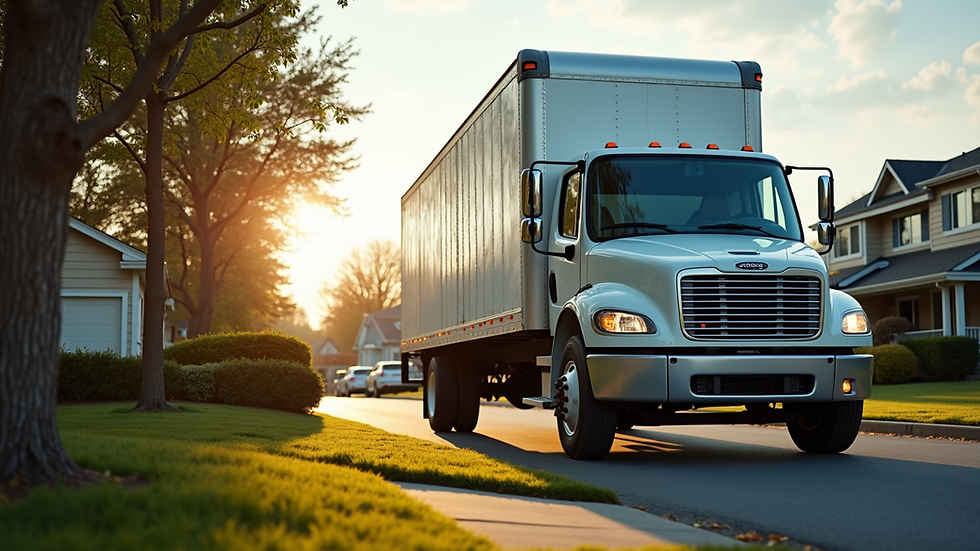Exploring Local and Long Distance Moving Options
- wemovedmv1
- Nov 4, 2025
- 4 min read
Moving to a new home or office can be an exciting yet challenging experience. Whether you are relocating across town or across the country, understanding your moving options is essential to ensure a smooth transition. This article explores the differences between local and long distance moves, highlights the benefits of professional long distance relocation services, and offers practical tips to help you plan your move effectively.
Understanding Long Distance Relocation Services
Long distance relocation services specialize in moves that cover significant distances, typically over 100 miles or crossing state lines. These services are designed to handle the complexities of transporting your belongings safely and efficiently over long distances.
Professional movers offering long distance relocation services provide:
Comprehensive planning: They help coordinate every step, from packing to delivery.
Specialized equipment: Trucks and containers suited for long hauls.
Insurance options: Protection for your valuables during transit.
Tracking and communication: Updates on your shipment status.
Choosing a reputable long distance moving company can reduce stress and prevent common pitfalls such as lost items or delayed deliveries.

Key Differences Between Local and Long Distance Moves
Local moves usually involve relocating within the same city or metropolitan area. These moves are often completed within a day or two and are charged by the hour. In contrast, long distance moves require more planning, take longer to complete, and are typically priced based on the weight of your shipment and the distance traveled.
Here are some important distinctions:
| Aspect | Local Move | Long Distance Move |
|----------------------|-----------------------------------|-----------------------------------|
| Distance | Usually under 100 miles | Over 100 miles or interstate |
| Pricing | Hourly rate | Weight and distance-based |
| Duration | 1 day or less | Several days to weeks |
| Planning Complexity | Less complex | Requires detailed coordination |
| Insurance | Basic coverage | Comprehensive insurance options |
Understanding these differences helps you select the right service and budget accordingly.
How to Choose the Right Moving Company
Selecting a moving company is a critical step in your relocation process. Here are some actionable recommendations to help you make an informed decision:
Research and Reviews: Look for companies with positive customer feedback and high ratings.
Licensing and Insurance: Verify that the company is licensed by the Department of Transportation and offers adequate insurance.
Get Multiple Quotes: Obtain at least three estimates to compare prices and services.
Ask About Services: Confirm if they provide packing, storage, and unpacking services.
Check for Hidden Fees: Clarify all charges upfront to avoid surprises.
By following these steps, you can find a reliable mover that fits your needs and budget.

Tips for a Smooth Moving Experience
Moving can be overwhelming, but careful preparation can make the process easier. Here are some practical tips:
Start Early: Begin planning and packing weeks in advance.
Declutter: Donate or sell items you no longer need to reduce moving costs.
Label Boxes: Clearly mark boxes with contents and destination rooms.
Create an Inventory: Keep a detailed list of your belongings.
Prepare Essentials: Pack a separate bag with important documents, medications, and daily necessities.
Communicate: Stay in touch with your moving company for updates.
These steps help minimize stress and ensure your move goes as planned.
Exploring Your Local and Long Distance Moving Options
When planning your move, consider the full range of local and long distance moving options available. Some companies specialize in both, offering flexible solutions tailored to your specific situation. For example, if you are moving within the same city but have bulky items, a local moving service with specialized equipment can be ideal. Conversely, if you are relocating to another state, long distance relocation services provide the expertise and resources needed for a successful move.
Many movers also offer hybrid services, such as local pickup combined with long distance shipping, which can be cost-effective and convenient. Always discuss your unique requirements with your moving company to find the best fit.
Preparing for Life After the Move
Once your belongings arrive at your new location, the work is not over. Here are some tips to help you settle in quickly:
Unpack Strategically: Start with essential rooms like the kitchen and bedroom.
Inspect Your Items: Check for any damage or missing items and report them immediately.
Update Your Address: Notify banks, utilities, and other important contacts.
Explore Your Neighborhood: Familiarize yourself with local services and amenities.
Set Up Utilities: Ensure electricity, water, internet, and other services are operational.
Taking these steps will help you feel at home faster and reduce post-move stress.
Moving is a significant life event that requires careful planning and the right support. Whether you are considering a local move or a long distance relocation, understanding your options and working with experienced professionals can make all the difference. By leveraging expert long distance relocation services and following practical advice, you can enjoy a seamless transition to your new home.





Comments